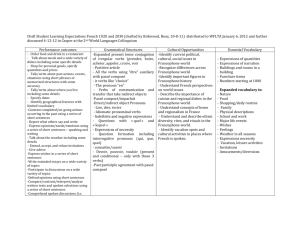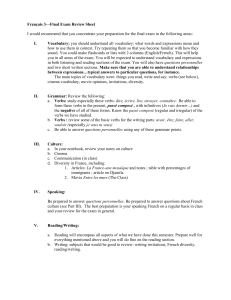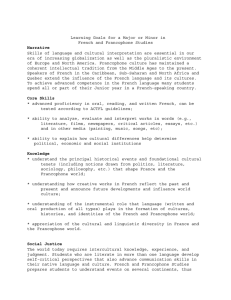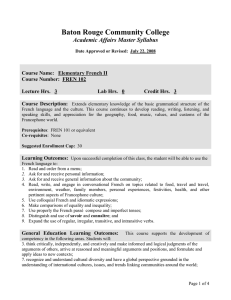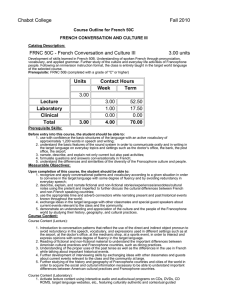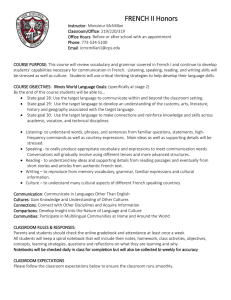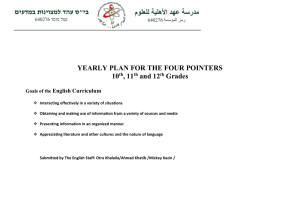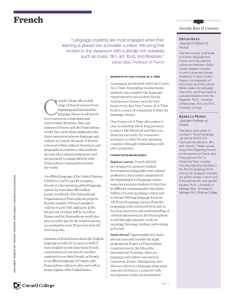Final Review Sheet
advertisement
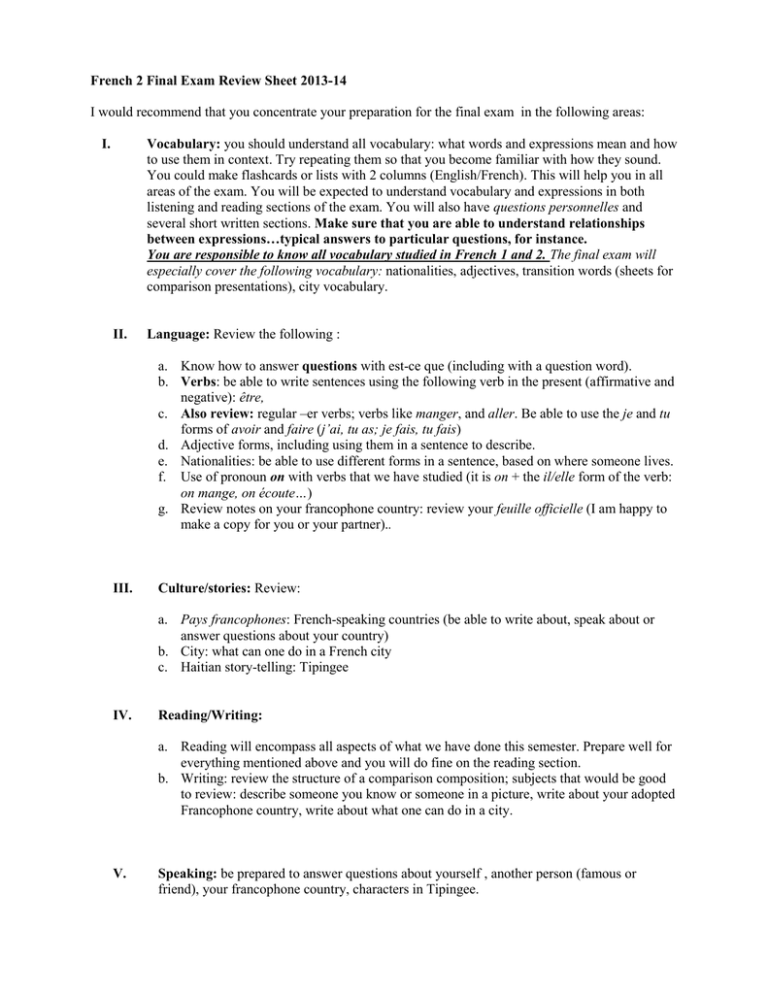
French 2 Final Exam Review Sheet 2013-14 I would recommend that you concentrate your preparation for the final exam in the following areas: I. Vocabulary: you should understand all vocabulary: what words and expressions mean and how to use them in context. Try repeating them so that you become familiar with how they sound. You could make flashcards or lists with 2 columns (English/French). This will help you in all areas of the exam. You will be expected to understand vocabulary and expressions in both listening and reading sections of the exam. You will also have questions personnelles and several short written sections. Make sure that you are able to understand relationships between expressions…typical answers to particular questions, for instance. You are responsible to know all vocabulary studied in French 1 and 2. The final exam will especially cover the following vocabulary: nationalities, adjectives, transition words (sheets for comparison presentations), city vocabulary. II. Language: Review the following : a. Know how to answer questions with est-ce que (including with a question word). b. Verbs: be able to write sentences using the following verb in the present (affirmative and negative): être, c. Also review: regular –er verbs; verbs like manger, and aller. Be able to use the je and tu forms of avoir and faire (j’ai, tu as; je fais, tu fais) d. Adjective forms, including using them in a sentence to describe. e. Nationalities: be able to use different forms in a sentence, based on where someone lives. f. Use of pronoun on with verbs that we have studied (it is on + the il/elle form of the verb: on mange, on écoute…) g. Review notes on your francophone country: review your feuille officielle (I am happy to make a copy for you or your partner).. III. Culture/stories: Review: a. Pays francophones: French-speaking countries (be able to write about, speak about or answer questions about your country) b. City: what can one do in a French city c. Haitian story-telling: Tipingee IV. Reading/Writing: a. Reading will encompass all aspects of what we have done this semester. Prepare well for everything mentioned above and you will do fine on the reading section. b. Writing: review the structure of a comparison composition; subjects that would be good to review: describe someone you know or someone in a picture, write about your adopted Francophone country, write about what one can do in a city. V. Speaking: be prepared to answer questions about yourself , another person (famous or friend), your francophone country, characters in Tipingee. VI. Tips for preparing for the final exam. a. Start studying now. There is too much information on this exam for you to be able to review it in one night. Also, by repeating some things over and over, you will remember it better. This exam counts 10% of your final grade. Take it seriously. b. Use the following materials to study: notes, packets, vocabulary sheets, my worksheets. You may also sign out your journal or your quiz folder. c. Bring in questions. By studying early, you can identify where you need help. d. Repeat, repeat, repeat. Write things out for practice. Study with a friend; you can quiz each other. e. If you would like to sign out your test folder, you may do so. You must return it by Friday, June 13, 2014. VII. During the midterm exam a. It is Wednesday, January 18, 2014, from 7:30 to 9:30 in Room 109 (our regular classroom). b. Do not be late. The exam will start immediately. (If you are late, you must have a pass from the office. We will be starting with the listening exercises. These will not be repeated once complete. Anyone arriving late will receive a zero for sections missed. c. No food or drink (besides water or flavored waters) is allowed during the exam. Eat breakfast before this exam. d. Take care of personal business before the scheduled exam time. No one will be allowed to leave during the exam, even if you finish early. e. Bring something quiet to do in case you finish early. Suggestions: appropriate book or magazine, study materials for another class, paper to write a letter, etc. No electronics will be allowed during this period (Example: MP3, ipods, personal organizers, iphones, smartphones, cellphones….). VIII. Bon courage !
